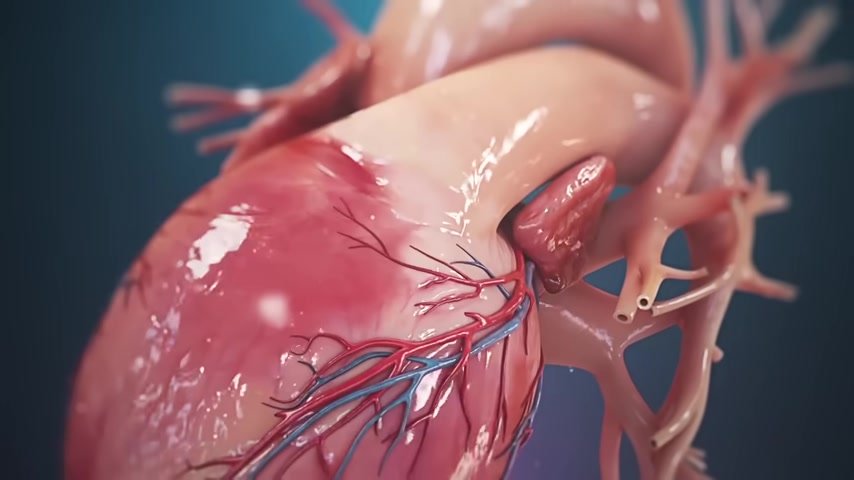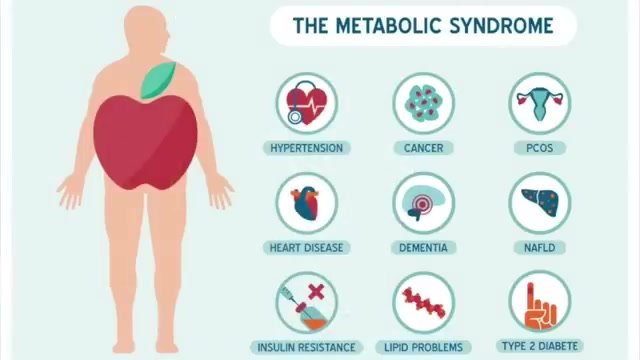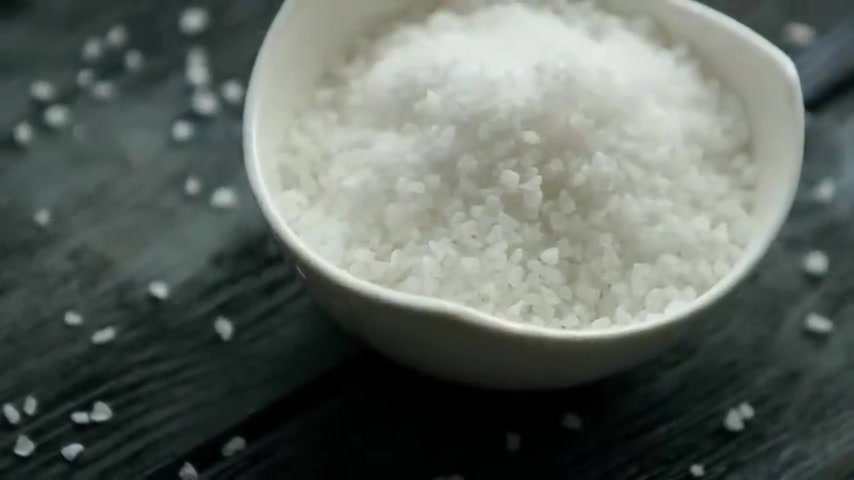Table of Contents
Discover the connection between potassium deficiency and diabetes. Learn how low potassium levels can affect insulin production and increase your risk of developing diabetes.
Are you concerned about diabetes? You might be surprised to learn that a potassium deficiency could be a contributing factor. This article explores the link between potassium and diabetes, explaining how low potassium levels can impact insulin production and increase your risk of developing this chronic condition.
Potassium and diabetes
Let’s talk about the relationship between potassium and diabetes .
Did you realize that a potassium deficiency could actually trigger a new onset of diabetes ?
If you have diabetes or prediabetes or insulin resistance , this video is very , very important .
Potassium Deficiency, medications and diabetes
In fact , 1 of the common drugs , the first line of defense against high blood pressure is these diuretics called Thiazide diuretics .

And it’s well known that they give you a risk of developing diabetes .
Now you think that would discourage doctors from using it , but it’s 1 of the big side effects .
These diuretics are used for hypertension .
So that’s why they use it .
On the flip side , there’s another drug called an ACE inhibitor .
Which actually protects against diabetes .
It actually lowers your risk of getting diabetes , which is interesting , and it too is used for blood pressure .
Now my question is , what’s going on here ?
Why would 1 increase the risk and yet the other 1 decrease the risk ?
And I believe it has everything to do with what these 2 drugs do to potassium .
| Key Points | Explanation |
|---|---|
| Potassium Deficiency and Diabetes | A potassium deficiency can trigger the onset of diabetes. |
| Diuretics and Diabetes | Thiazide diuretics, a common blood pressure medication, can deplete potassium and increase the risk of developing diabetes. |
| ACE Inhibitors and Diabetes | ACE inhibitors, another blood pressure medication, protect against diabetes by increasing potassium levels. |
| Potassium and Insulin | Potassium is essential for insulin release. When potassium levels are low, insulin production is reduced, leading to higher blood sugar levels. |
| Potassium Benefits | Potassium protects the kidneys, heart, arteries, and helps prevent stroke and diabetes.[1] It also powers the nervous system and helps regulate sodium.[1] |
| Potassium RDA | The recommended daily intake of potassium is 4700 mg. |
| Good Sources of Potassium | Leafy greens, potatoes, avocado, electrolyte powders. |
| Potassium and Low-Carb Diets | When you go on a low-carb diet, you lose fluid and potassium because potassium is locked up in glucose. |
| Potassium and Type 1 Diabetes | People with type 1 diabetes who forget to take their insulin can develop diabetic ketoacidosis. Potassium can help treat this condition by increasing insulin production. |
First of all , the thiazide diuretic depletes your potassium .
If you are consuming a diet that is very low on potassium , like most people , and you’re taking this drug on top of that , chances are you can end up with very low levels of potassium .
And without enough potassium , okay , insulin can’t be released too well .
So we have a lessened amount or production of insulin when we have low potassium .
Now what’s gonna happen when we don’t have enough insulin ?
We’re gonna have higher levels of glucose in the blood .
What’s the name of that ?
Diabetes .
Now with the ACE inhibitor , it just so happens .
1 of the things that it does is it increases potassium by helping you prevent the loss of potassium .
So there’s this certain ACE enzyme that’s basically increasing blood pressure .
It also helps use hold sodium , and it releases potassium .
And so they develop these ACE inhibitors , okay , to inhibit that enzyme to help you lower the blood pressure .
And 1 of the mechanisms that works is basically by helping you hold potassium .
But my question is this , if potassium not only helps you lower your blood pressure , but also if potassium is deficient , your blood pressure is gonna go up in the 1st place .
So if the way this ACE inhibitor is working by increasing your potassium levels to bring your blood pressure down , then why not just start consuming foods high in potassium or take potassium ?
Why do we need to take a drug to increase our potassium ?
Potassium benefits
You have to realize how important potassium is for your whole body.
It protects the kidney against kidney disease .

It protects your heart against all sorts of issues .
It keeps the arteries flexible .
It helps prevent a stroke .
And , apparently , it also helps you protect against diabetes because it helps to increase the normal amounts of insulin that you need to regulate this blood sugar .
So we have these interesting , drugs used for various symptoms , but I don’t understand why they just don’t look beyond that .
And what’s really underneath this problem .
There are so many people that get rid of their blood pressure problem by taking potassium .
And there’s also a lot of people that improve their blood sugars by taking potassium .

So as far as metabolic syndrome , where you have both blood pressure problems and glucose , potassium is probably 1 of the most important minerals to take , especially since the majority of the population just does not get enough .
Potassium RDAs
The requirements for potassium are extremely high .
And you might not realize this .
So 1 banana will give you like 300 milligrams of potassium , You need 47100 .
Banana , 300 .
Requirement , 47100 .
Foods high in potassium

Potatoes are high in potassium .
Leafy greens are the best source of potassium .
Big salads .
Avocado is really good .
You can also get potassium from electrolyte powders because a lot of times the pills only come in 99 milligrams .
Again , you need 47 100 milligrams .
So you’d have to have a lot of pills to achieve that daily recommended amount .
Our bodies also need potassium for the sodium potassium pump , which is in every single cell in your body to help power the nervous system in connection with the muscles .
And this is why if you’re low on potassium , you feel kinda tired .
Potassium also helps to regulate sodium , and you need this balance of at least twice as much potassium as you do sodium .

In fact , if you have a salt sensitivity , which means a intolerance for salt , what that really means is you just need more potassium .
And if you’re eating a lot of carbs and sugar , it takes potassium to store this sugar .
So a good amount of potassium in the body gets locked up in this sugar .
This is why when when you go on a low carb diet , you get rid of so much fluid because you’re getting rid of all this excess glucose that’s stored as glycogen .
Some people can lose up to £11 of fluid just by getting rid of this , this excess of glucose that’s stored .
But in the process , you’re gonna lose potassium too because it’s locked up into the glucose .
This is why it’s really important to take potassium or get enough from the diet when you’re doing the ketogenic diet or a low carb diet .

But then again , if you’re on a high carb diet , you need it even more .
1 last point about this interesting relationship between , potassium and insulin .
Type 1 diabetes and potassium
When someone’s a type 1 diabetic , right , and they forget to take their insulin , they can start generating massive amounts of ketones way , way higher than , you could if you didn’t have the problem , and that’s called diabetic ketoacidosis .
1 of the big treatments for this is to take potassium , which will not only help alkalize the body because it’s alkaline , but it can definitely help , protect against this condition .
Why ?
Because potassium is needed to make this insulin to increase the production of insulin .
So it’s my belief if you have enough potassium as a diabetic type 1 , you probably would not develop ketoacidosis .
But , of course , that’s just my opinion .
Check with your doctor before taking any actions on this Topic.
key Points:
- Diuretics are commonly used to treat high blood pressure. But, they come with side effects, including an increased risk of developing diabetes.
- On the flip side, ace inhibitors, also used to treat high blood pressure, protect against diabetes and lower the risk of diabetes.
- I believe the big difference between these two drugs, when it comes to diabetes risk, is what they do to potassium.
- Diuretics deplete potassium, and without enough potassium, insulin can’t be released very well. A deficiency of insulin can then lead to diabetes. Ace inhibitors increase potassium by helping to prevent the loss of potassium.
- So why do we even need a drug—why aren’t we just consuming more potassium? Many people support healthy blood pressure and healthy blood sugar levels by taking potassium.
Benefits of potassium:
• It protects the kidneys
• It protects the heart
• It helps protect against stroke
• It helps protect against diabetes
• It helps power the nervous system in connection with the muscles
• It helps regulate sodium
The RDAs for potassium are 4700 mg. It might surprise you, but bananas aren’t a good source of potassium. A few of the best sources of potassium are:
• Leafy greens
• Potatoes
• Avocado
• Electrolyte powder
DATA:
https://pubmed.ncbi.nlm.nih.gov/1619503
https://www.ncbi.nlm.nih.gov/pmc/articles/PMC3197792
https://ucfhealth.com/our-services/endocrinology/the-relationship-between-potassium-and-diabetes
FAQ:
FAQ: Potassium, Insulin, and Diabetes
Why does hypokalemia cause hyperglycemia?
Hypokalemia, or low blood potassium, can cause hyperglycemia, or high blood sugar, in several ways:
- Decreased insulin sensitivity: Potassium is crucial for insulin to work properly. When potassium levels are low, cells become less responsive to insulin, leading to impaired glucose uptake and increased blood sugar levels.
- Increased glucagon secretion: Potassium deficiency can stimulate the release of glucagon, a hormone that raises blood sugar levels.
- Impaired glycogen synthesis: Potassium plays a role in glycogen synthesis, the process of storing glucose in the liver and muscles. Low potassium levels can hinder this process, leading to increased blood sugar.
- Increased glucose production: In some cases, hypokalemia can lead to increased glucose production by the liver, further contributing to hyperglycemia.
What is the relationship between potassium and insulin?
Potassium and insulin have a close relationship. Potassium is essential for insulin to function properly. When potassium levels are low, insulin becomes less effective at lowering blood sugar. Conversely, high potassium levels can enhance insulin sensitivity and improve blood sugar control.
Does high potassium indicate diabetes?
Not necessarily. While high potassium levels can sometimes be a sign of diabetes, it’s not always the case. Other factors, such as kidney disease or certain medications, can also cause high potassium. If you have concerns about your potassium levels, it’s important to consult your doctor.
How does hypokalemia decrease insulin release?
The exact mechanism by which hypokalemia decreases insulin release is not fully understood. However, research suggests that low potassium levels may impair the function of beta cells in the pancreas, which are responsible for producing insulin. Additionally, hypokalemia can affect the electrical activity of these cells, hindering insulin secretion.
Potassium and diabetes type 1
In type 1 diabetes, the body does not produce insulin. Therefore, potassium’s role in insulin sensitivity is less relevant. However, maintaining healthy potassium levels is still important for overall health and can help manage blood sugar fluctuations.
Potassium and diabetes type 2
In type 2 diabetes, the body either doesn’t produce enough insulin or doesn’t use it effectively. In this case, maintaining healthy potassium levels becomes even more crucial. Adequate potassium can improve insulin sensitivity and help manage blood sugar levels.
High potassium and diabetes
While high potassium levels are generally not a direct cause of diabetes, they can be a concern for people with diabetes, especially those with kidney disease. High potassium can interfere with medications used to treat diabetes and may require adjustments in medication dosage or dialysis.
Potassium and glucose relationship
Potassium plays a vital role in regulating blood sugar levels. It helps maintain insulin sensitivity, promotes glycogen storage, and influences glucose production and utilization. Maintaining healthy potassium levels is essential for both preventing and managing diabetes.
What causes low blood sugar and low potassium
Several factors can contribute to both low blood sugar (hypoglycemia) and low potassium (hypokalemia):
- Medications: Certain medications for diabetes and other conditions can deplete potassium levels.
- Diet: A diet low in potassium-rich foods can lead to deficiency.
- Diarrhea and vomiting: These conditions can cause significant electrolyte loss, including potassium.
- Kidney disease: Kidney problems can impair potassium regulation.
Insulin causes hypokalemia or hyperkalemia
Insulin itself does not directly cause hypokalemia or hyperkalemia. However, certain situations related to insulin therapy can affect potassium levels:
- Diabetic ketoacidosis (DKA): This serious complication of diabetes can lead to severe electrolyte imbalances, including hypokalemia.
- Shifting fluids: When insulin effectively lowers blood sugar, fluids may shift from the bloodstream into cells, potentially causing a temporary decrease in potassium levels.
Best potassium supplement for diabetics
The best potassium supplement for diabetics depends on individual needs and preferences. It’s important to consult your doctor before taking any supplements, as they can interact with medications or have side effects. Some common options include:
- Potassium chloride: This is the most common form of potassium supplement.
- Potassium citrate: This form is less likely to cause stomach upset than potassium chloride.
- Potassium bicarbonate: This form can help neutralize stomach acid and may be beneficial for people with low stomach acid.
High potassium and insulin
High potassium levels (hyperkalemia) can be dangerous, especially for people with diabetes. It can interfere with the heart’s electrical activity and lead to serious complications. If you have diabetes and experience symptoms of hyperkalemia, such as muscle weakness, fatigue, or irregular heartbeat, seek immediate medical attention.




